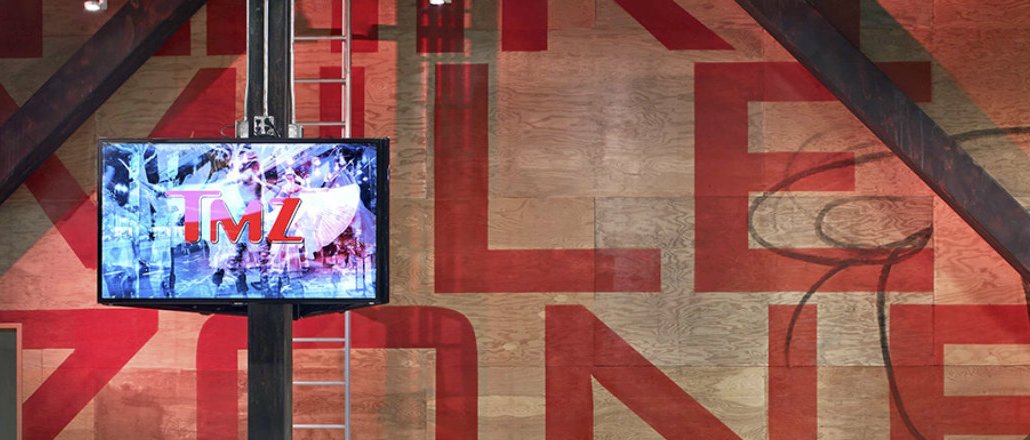Secure your place at the Digiday Publishing Summit in Vail, March 23-25

Advertisers might still be just dipping their toes in the Facebook Live water, but publishers are diving in headfirst.
Entertainment news outlet TMZ, which has more than 6.1 million fans on its main Facebook page, went on Facebook Live shortly after the social platform opened up the tool for publishers last fall. Its live streams are averaging between 75,000 and 100,000 live viewers and 7,000 to 25,000 comments on average, according to Donald Alexander, director of social media and audience development for the celebrity gossip site.
“People can watch us on TV or on digital. But the only way to really have that one-on-one connection between on-air talent and fans is on social media,” said Alexander.
Today, TMZ is doing weekly live shows on the platform. For instance, on Mondays starting at 2 p.m. ET, the company’s lawyers discuss the previous week in the entertainment business. On Wednesdays, TMZ boss Harvey Levin recaps the previous night’s episode of FX’s “The People vs. OJ Simpson,” while providing his personal account of the infamous criminal trial.
“Social platforms, in general, whether it’s YouTube or Facebook, are becoming another screen where people are looking for regularly scheduled programming,” said Alexander. “With Facebook Live, we can also extend beyond what we do on the TV show and finish that conversation on social.”
While generating live viewership is the focus, TMZ also looks to expand the reach of its content by making the clips available on demand across platforms — not just Facebook. The full live stream is available on demand on Facebook, but the clip is also cut up into segments, which are then distributed across TMZ.com and syndication partners like Hulu and YouTube (some even air on the TV show).
Of course, Hulu and YouTube are different platforms than Facebook Live, and viewers have an expectation of watching videos shot at a higher quality than the iPhones typically used to record Facebook live streams. To account for this, TMZ sets up a film camera next to the iPhone it uses for the Facebook stream. It captures the same content but works better for segments that are distributed on other platforms.
NBC’s “Access Hollywood,” meanwhile, is using Facebook to up the engagement around its coverage of awards shows. For instance, last Oscar Sunday, the program went live 22 times on Facebook, providing a comprehensive behind-the-scenes look into all aspects of the day — from the on-air personalities preparing for the red carpet, the actual red-carpet arrivals and even the famous Vanity Fair after-party. In total, the 22 live streams have been viewed more than 3.3 million times on Facebook.
Going all-in on Facebook Live on Hollywood’s biggest night was an easy decision, according to Scott Stemmermann, vp of digital at NBCU Domestic Television Distribution.
“Facebook is where the majority of our fans are following and engaging with us,” he said. “It’s by far our largest footprint. Versus trying to get our fans to go to Periscope or Meerkat, it just made more sense.” “Access Hollywood” has more than 1.6 million fans on its main Facebook page.
In terms of actual planning and execution of the live streams, “Access Hollywood” had six people manning the effort — this excludes the show’s on-air hosts Billy Bush and Liz Hernandez, as well as social influencer Daniel Preda, all of whom hosted the live streams.
Looking ahead, “Access Hollywood” wants to employ Facebook Live outside of its coverage of awards shows. For instance, it could set up Facebook Live sessions with celebrity guests that drop by its morning show, according to Stemmermann.
“Given our success,” he said, “it’s only emboldened us [to do more] going forward.”
More in Media

Why more brands are rethinking influencer marketing with gamified micro-creator programs
Brands like Urban Outfitters and American Eagle are embracing a new, micro-creator-focused approach to influencer marketing. Why now?

WTF is pay per ‘demonstrated’ value in AI content licensing?
Publishers and tech companies are developing a “pay by demonstrated value” model in AI content licensing that ties compensation to usage.

The case for and against publisher content marketplaces
The debate isn’t whether publishers want marketplaces. It’s whether the economics support them.





